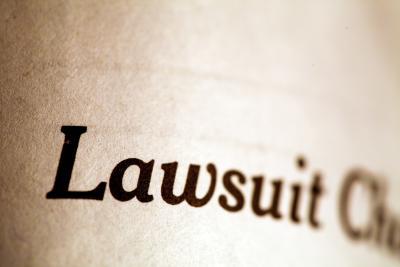Estoppel Certificates Protect Buyer (and Seller too!)
To verify a property’s cash flow, buyer customarily reviews the leases since any inaccuracies can greatly affect the property’s net operating income and thereby its value. But, buyer cannot by only reviewing the leases determine how much tenants actually currently pay for base rent, property taxes, insurance and other common areas costs, and if such payments are current.
In fact, buyer cannot even be certain that the lease documents seller provides buyer comprise the entire agreement between the landlord and tenant and that there no side deals, i.e., secret or missing amendments. Similarly, buyer cannot ascertain whether tenant has prepaid any rent, exercised an extension option, received any required tenant improvement allowance, waived a right of first refusal to purchase, etc. Buyer should also be concerned about waivers, made orally or by course of conduct, by seller of rights against tenant which are not necessarily reflected in the lease but are binding on buyer.
To address these concerns, and to inform buyer (and its lender) of tenant’s understanding of the lease agreement, buyer should require estoppel certificate (or “offset statement”) signed by each tenant of the property. Seller may resist obtaining estoppel certificates from tenants since this task can be difficult, time consuming and cumbersome. Also, tenants are generally aware that landlord’s request for estoppel certificates indicates a pending sale (or financing), the closing of which may depend on tenant signed estoppel certificates.
So, sometimes tenants use the landlord’s request for an estoppel certificate as an opportunity to resolve lingering problems which landlord has not addressed, such as roof leaks, or simply to negotiate for new concessions from the landlord. Also, while many commercial leases require tenants to deliver an estoppel certificate, some leases are silent on the subject. In either situation, seller/landlord may encounter difficulties in securing tenant signed estoppel certificates.
As an alternative to obtaining tenant estoppel certificates, seller may offer to provide a rent roll and certify, for example, current rents, common area costs and security deposits. The rent roll is often used in residential rental (i.e., apartment project) transactions, especially when the property has a large number of small tenants. If buyer, in reliance on the rent roll, closes escrow and then discovers the rent roll was incorrect, buyer’s recourse is to sue seller for breach of contract.
Yet another alternative is for seller to provide an estoppel certificate on behalf of or instead of tenant. This option is often used in commercial transactions where seller is unable to obtain estoppel certificates from a minimum number of tenants or tenants occupying a minimum number of square feet of the property. Seller-signed estoppel certificate does not bind the individual tenants, but if seller representations are false, buyer may sue seller for a breach. Also, when seller executes an estoppel certificate, buyer has no duty to investigate the accuracy of such representations therein—even if buyer has ways which, if pursued, would reveal the falsity of seller’s representations.
Buyer and seller often have polar opposite perspectives on many issues in negotiating a purchase and sale agreement. But, seller should consider that obtaining tenant estoppel certificates does not only protects buyer but also benefits seller. A tenant estoppel certificate prevents or reduces unwelcome post-closing surprises from tenant against either buyer or seller.
When tenant signs an estoppel certificate, tenant is bound by the representations contained in the estoppel certificate. Tenant cannot later take a different position, whether against seller or buyer, and assert a claim contrary to its statements. In case of a legal dispute with tenant, either seller or buyer can use the estoppel certificate against tenant since tenant is bound by the representations contained in the estoppel certificates.
For example, if tenant states in an estoppel certificate that landlord is not in breach or default, after escrow closes tenant cannot subsequently claim that seller/landlord was somehow in default under the lease. Such a statement in an estoppel certificate reduces or eliminates claims by tenant based on lease defaults before the date of the certificate and protects seller against pre-closing liability to tenants. Similarly, tenant-signed estoppel certificate eliminates (or at least reduces) buyer dealing with post-closing claims by tenant under the lease.
While buyer should insist on obtaining estoppel certificates signed by tenants, seller should seriously consider spending the time and effort to obtain these certificates to benefit from the protections they also provide seller.




































